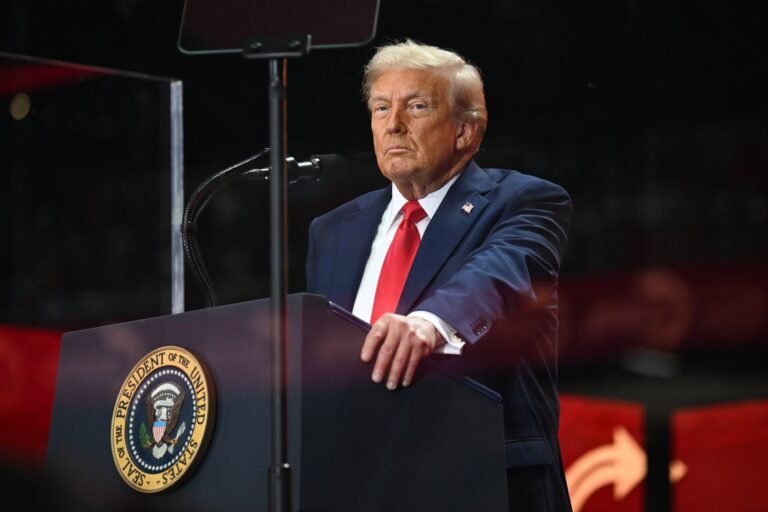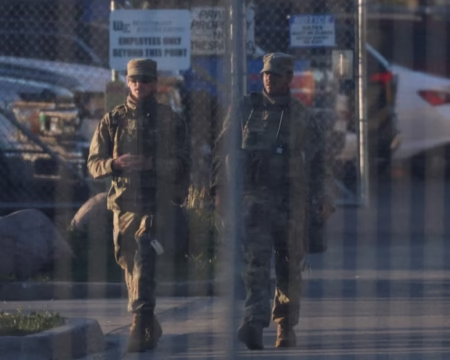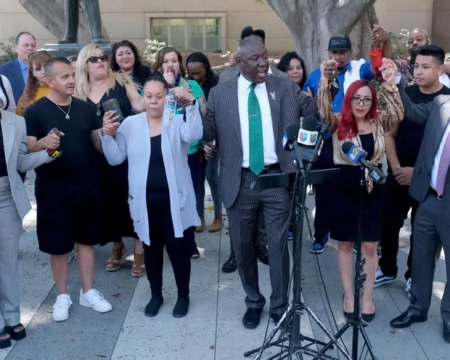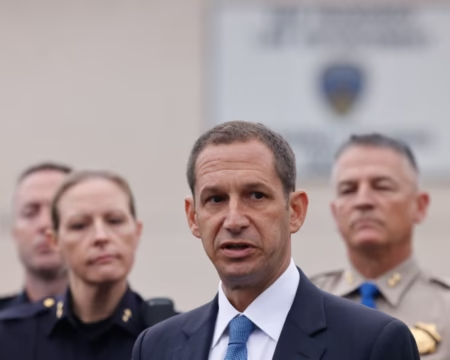President Donald Trump honored conservative activist Charlie Kirk at a large memorial in Arizona on Sunday. While he praised Kirk as a “martyr,” his remarks quickly shifted toward politics. The speech, which lasted about 45 minutes, mixed personal stories with sharp attacks on political opponents.
The service took place at State Farm Stadium in Glendale, drawing tens of thousands of people. Many of Trump’s top officials, including Vice President JD Vance, Secretary of State Marco Rubio, Defense Secretary Pete Hegseth, and White House Chief of Staff Susie Wiles, also addressed the crowd. The event lasted more than five hours and reflected both grief and political momentum.
Kirk, who was assassinated less than two weeks ago while speaking at a college campus in Utah, was remembered by family, friends, and political allies. His widow, Erika Kirk, spoke with a very different tone from Trump. She publicly forgave the man accused of killing her husband, saying forgiveness was rooted in her Christian faith. “The answer to hate is not hate,” she said.
Trump followed her remarks with a stark contrast. “I hate my opponent and I don’t want the best for them,” he said. He later apologized directly to Erika, but made clear that his political stance differed from her message of forgiveness.
During his address, Trump recalled Kirk’s journey from a young graduate with just $1,800 to the leader of a multimillion-dollar political movement with chapters across the country. He credited Kirk with helping Republicans connect with younger voters in past elections and praised his ability to inspire others. Trump said Kirk was one of the few people who gave more than he ever asked for, noting his deep faith, family values, and dedication to his cause.
The president also announced that Kirk would posthumously receive the Presidential Medal of Freedom. He promised Erika Kirk that her children would grow up in a nation where their father would be honored as a hero.
At the same time, Trump used the moment to outline parts of his political agenda. He mentioned a forthcoming announcement on autism, his plans to send federal agents to Chicago to address crime, and his record on trade tariffs. He also criticized what he called “radical-left agitators” and claimed they were behind networks of political violence. He described the man accused of killing Kirk as a “radicalized, cold-blooded monster” and said the Department of Justice was investigating broader ties to organized groups.
His political tone stood in sharp contrast to earlier speakers who emphasized Kirk’s Christian mission. Pete Hegseth told the crowd that Kirk believed the country needed “a lot more God” in addition to less government. Others highlighted Kirk’s work through Turning Point USA, crediting him with reshaping Republican influence across the nation.
Vice President JD Vance said the administration owed much of its success to Kirk’s efforts. “Our whole administration is here not only because we loved Charlie, but because we know we wouldn’t be here without him,” Vance told the audience.
Despite Trump’s passionate defense of Kirk and his attacks on critics, some attendees began leaving the stadium during his speech. Many had been in line since early morning, and the length of the service made the day exhausting for those who traveled long distances.
Still, the event ended on a symbolic note. After Trump finished his remarks, he invited Erika Kirk back on stage. The two embraced as “America the Beautiful” played. They clasped hands and walked off together, a moment of unity after a day marked by both mourning and politics.
Charlie Kirk’s life and death left a significant mark on his supporters and the political movement he built. For many, the memorial was both a farewell and a call to continue his mission. Trump’s memorial speech highlighted that dual meaning: a tribute to a fallen ally and a rallying cry for his political vision.







